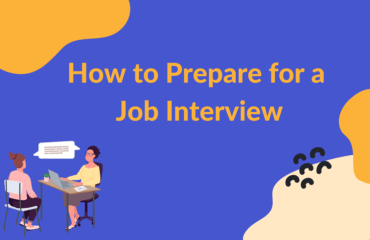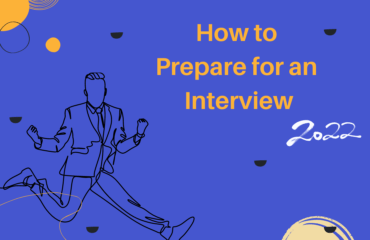Table of Contents
An interview is a crucial part of a recruitment process as it is the first face-to-face (even a video call) interaction you have with your potential employer. The employer gets a chance to assess your fit for the role beyond the information found on your resume. This includes your personality, values, beliefs, and general demeanor. While there are a host of resources available to prepare you for an interview, if you are attending an interview in the United Arab Emirates (UAE), there are a few additional things you may want to make a note of. Understanding these differences can give you an edge over other candidates.
How are interviews in the UAE different from other countries?
The purpose and flow of interviews may be similar across the world, but etiquette, ideal responses, and some basic expectations differ when it comes to the UAE. From the outside, the UAE may look very similar to western nations with its buzzing commercial life and towering skyscrapers, but it’s important to note that the UAE thrives on its culture and traditions. That said, the UAE is more than welcoming to foreigners as 89% of the population consists of expats.
It is, at its core, an Islamic nation and thereby draws many of its values from Islam. These values dictate what is appropriate during an interview as well. Additionally, your choice of clothing, body language, and demeanor play more of an essential role in your interview here. Preparing for an interview would generally start with research on the job itself. In the UAE, you’d start by researching the target country and its culture.
Preparing for the Interview
1) Understanding the country
The UAE consists of seven Arab Nations: Dubai, Abu Dhabi, Sharjah, Ajman, Fujairah, Ras Al Khaimah, and Umm Al Quwain. The UAE plays host to several international companies with labor shortages in sectors such as Science and Tech, Construction, Logistics, Hospitality, Retail, and more. Though most people equate the UAE to Dubai only, many large companies have established a presence in other emirates, opening up job opportunities for expats across the UAE, and with each emirate, the basic etiquette and traditions change.
Since several of these traditions are legally enforceable in the UAE, the laws too differ across countries. So, step one would be to conduct a thorough study of the values. Here are a few questions you may want to answer before preparing for the interview:
- What is the accepted business attire
- What are the general laws and regulations of the state
- What is the general work week
- What are the rules regarding communication with the opposite gender
- What are the labor and VISA laws of the emirate
These basic questions will give you a clear understanding of what to expect. Most businesses structure their internal policies based on the local laws. Additionally, a fair share of the traditions also plays a part in business settings. For example, the traditional greeting, rules governing interactions with the opposite sex, etiquette when visiting someone’s home, public behavior, and more. Therefore, it is critical to be aware of the beliefs and traditions of the country. We have put together a list of the most important traditions below.
2) Research the job description and the job role
We always recommend researching the job, irrespective of the country where you are interviewing. Start by going through the job description again and identifying the critical requirements for the job, then look at the expected outcomes or KPIs, and finally, compare it with your own experience and skills. Once you’ve gathered relevant examples, note them down and ensure you place these into the answers you prepare.
With the UAE in particular, there may be a few requirements that are not explicit from the job ad alone. We’d suggest you go a step further and speak to peers in the same field and get pointers. For example, if you’re applying to a customer-facing job (like sales), you may be required to meet with clients in informal settings. You can then look up the etiquette surrounding informal meetings and address them in your interview.
Another instance is if you’re applying to a role that requires working around the week. These would be roles such as customer service wherein the expected “Sunday to Thursday” work week may not be employed. For such positions, companies often prefer to hire expats so they can continue providing services through the week without infringing upon the traditional prayer time.
3) Research the company
The next focus would be the values, culture, goals, and direction of the company. Research the company thoroughly through their social media pages, websites, Glassdoor page, and so on. When you carry out this research, keep the following questions in mind:
- What are the goals of the company?
- What is its area of focus?
- What are some possible channels of evolution?
- Is the company inclusive?
- What do the employees say about company culture?
- What is the dress code followed by the company?
This exercise will allow you to refine the way you portray yourself and show the recruiter that you have taken the time to do your homework. Then, you can work on structuring your responses and may even take up a few mock interviews. When interviewing in a new country, you may not be aware of the best ways to put your thoughts forward, but practicing with experts can get you ready.
Usually, your interview preparation would be done at this juncture. In the UAE, however, a key proponent of success is your etiquette and behavior. In order to ensure a successful interview, you may want to acquaint yourself with some important traditions.
Important Interview Etiquette in the UAE
When attending an interview in Dubai or anywhere in the UAE, you’ll need to make sure that you are putting your best foot forward. Ensure you are dressed well and that your clothes and shoes are tidy. You must also maintain appropriate body language and prevent slouching, crossing your legs, avoiding eye contact, or frowning. Though it may not be necessary in all cases, we’d suggest you carry physical copies of your resumes as this is still preferred in many companies in the UAE. In addition, there are a few fundamental etiquette rules you must keep in mind for the UAE. Here are the most important ones:
1) Choose your clothing carefully
Choosing your attire for an interview in the UAE goes beyond the general definition of business attire. Since the UAE covers several emirates with varying rules, you’d have to look into the specific regulations for the emirate and the company. You can look up the company online and get a glance at employee attire. If you can’t find anything online, you can write an email to the HR manager asking for the dress code.
Here are some general tips:
- You would want to wear conservative, formal business suits.
- While you may notice several locals (especially men) dressed in the traditional Kandura, it is not acceptable for foreigners to wear the same.
- Perfume or deodorant may be essential but ensure it is not overwhelming.
- Since you can not be too sure of accepted tradition in the locality, go ahead and cover up any tattoos or piercings.
- It is key to wear non-revealing clothes that do not hug your body or accentuate your figure.
- Ensure that your legs, collarbones, and arms are sufficiently covered. You would also want to wear closed-toed shoes.
2) Punctuality
You may not be familiar with traffic or transportation times in the area if you’re new to the country. And the abundance of construction projects across the UAE means there are often diversions that you may not have anticipated. So we suggest you ask a local or take a trial run of your journey a few days in advance to estimate the time it would take for you to get to the location. Punctuality is highly regarded in the UAE. Therefore, you would want to get to the venue at least fifteen to thirty minutes in advance.
Then, waiting calmly for your interview puts yet another virtue on display, your patience. It also gives you some time to rest and gather yourself before the interview. In Arabic, the word ‘Sabur’ is equated to patience and is revered highly. It shows a person’s quality to stay steady in the face of various hurdles. So this is yet another opportunity for you to score some points.
3) Greetings and introductions
To begin with, ensure you greet the interviewer with respect and express your pleasure in being present. You can do so with something as simple as, “Hello Sir/Ma’am, It’s a pleasure to meet you.” On the other hand, some interviewers may choose to greet you with the traditional Arabic greeting, “As-salam Alaykum,” which means “peace be upon you.” The appropriate response, in this case, is, “Wa Alaykum as-salam.”
While it is customary to shake hands when meeting someone, in the UAE, you must first make a note of the gender of your interviewer. If your interviewer is of the opposite gender, you would want to wait for them to extend their hand rather than initiate the shake. This is because most religious Muslims do not find it respectful to touch members of the opposite sex. In case they do not initiate a handshake, you can place the palm of your hand over your heart and bow gently while greeting them.
4) Small talk and conversation
Small talk is a great way for you to establish rapport with the interviewer. A great rapport lets you build a personal connection with the recruiter and therefore leave a more lasting impression. It also allows you to feel more at ease and comfortable during the interview.
While keeping it generic works, you could also make use of this opportunity to make yourself more appealing to the interviewer. The UAE lays emphasis on relationships, and therefore mentioning any referrals you have or people you may know (associated with the company) is a great value-add to small talk. You may also be expected to divulge some personal information such as your family status, preference in lifestyle, and so on. These pieces of information allow the interviewer to determine your fit in the company and the country itself. During this phase of the interview or going forward, do not interrupt the interviewer. This is a sign of disrespect, and as we touched upon earlier, respect is paramount.
5) Drinking tea or coffee
In business settings, and sometimes in interviews, you may be offered traditional hot beverages such as the ‘Gahwa’ (a flavored Arabic coffee). When offered a drink, it is considered rude to refuse the same. Therefore you would want to accept the beverage with thanks. Always extend your right hand forward to receive anything. While drinking your coffee, you’d want to place the cup in your right hand as the left is often considered unclean.
6) Discussing salary in the initial interview
Salary packages or compensation may not be explicitly discussed in your initial interview. If the interviewer does not bring it up, you should not address it. We suggest waiting to hear about the offer and then negotiating rather than initiating the conversation yourself. This is because conversations about money may lead the interviewer to believe that you are more concerned about your monetary gain than the job itself.
7) Preparing for video interviews instead
Since the pandemic, several companies in the UAE have begun preferring an online mode of interviewing. You may be asked to attend a video interview even at the screening stage. When attending a video interview, the first thing to note is the platform of choice. If not mentioned, ask the interviewer about the application you’ll need for the interview. Since several video-calling applications are banned in the UAE, your interview may be on an application that you haven’t used in a while, such as Skype, or one that you’ve never heard of before. Download and check the application before your interview. When on the call, ensure you speak slowly and enunciate as there may be a difference in accents. Conversely, you would also need to listen patiently. Finally, ensure that you follow the dress code and basic etiquette even on the video call.
8) Asking questions during the interview
Asking the right questions shows the employer that you have researched the job and that you are serious about the opportunity. So, when presented with the opportunity, make sure you put forward at least a couple of questions. These can include:
- What are the most important goals for this role?
- What is life like in the country?
- What other Emirates could you be transferred to?
- How is the performance measured?
- What are the travel requirements associated with the job?
Top 10 Common Interview Questions in UAE
Interview questions in the UAE are quite similar to questions you find anywhere else in the world, barring a few exceptions. You can easily find resources that help you prepare your answers. While crafting your answers, always ensure that you add elements that tie your answers to the UAE. Here are the most common questions you might encounter:
- Tell me about yourself.
- What are your strengths and weaknesses?
- Are you willing to work in any other emirate?
- Why should we hire you?
- What is your salary expectation?
- Why do you want to work here?
- Why do you want to leave your current job?
- Where do you see yourself in 5 or 10 years?
- Tell us about a challenge you faced and how you overcame it.
While appropriate etiquette and respecting traditions is a larger focus with interviews in the UAE, the most crucial part of your preparation is research. Researching the company and job thoroughly, crafting answers to common questions, and finally, practicing your responses. Once done, you can work on pitching yourself as the ideal candidate while keeping in mind the traditional rules.
That said, interview preparation can be overwhelming due to the large quantum of work you’d need to put in. We carry an extensive library of interview preparation resources that can get you started. Understanding the expectations of the recruiter, though, could be made easier by enlisting assistance from experts in the field of recruitment.











